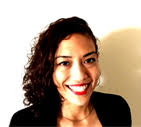My heart sank when I heard the news of how a 6-year-old boy’s suit against Putrajaya for denying him Malaysian citizenship had been dismissed. The boy – born to a Malaysian father and an Indonesian mother – was subsequently adopted by a local couple in 2008, soon after his birth and was granted permanent residence. However, attempts to register as a Malaysian citizen failed several times which lead to a series of legal proceedings initiated by the adopted parents.
The family is currently seeking a declaration under Articles 15 of the Federal Constitution which provides special powers to the federal administration to register anyone under 21 years of age as a citizen.
This child, along with countless other stateless children in this country, is at risk of numerous denials of rights as a result of being born with a nationality – in other words stateless. Being stateless means that one is not a “citizen of any sovereign country in this world, and is therefore not protected by the laws of any nation”.
In Malaysia, not having the coveted MyKad simply means that these children will continue living in the shadows of society because the lack of documentation will deny them basic rights. They will be unable to access education and will continue living in impoverished conditions, hence making them unemployable.
In an interview several years ago, adviser to Lawyers for Liberty, Eric Paulsen, said that authorities often insisted on “documentary proof that is impossible for them to provide – they (stateless communities) are often poor and illiterate”. The frustrating levels of bureaucracy are immense and demoralising, and most of them simply give up. The overwhelming sense of hopelessness creates a vicious cycle, one that continues to manifest itself within these communities and hinders any positive development.
The United Nations High Commissioner for Refugees (UNHCR) estimates that statelessness affects more than 12 million people around the world and approximately 5 million are children. The local numbers are estimated to be around 140,000, 40% of which are children. However, precise estimates of the number of stateless children in Malaysia are difficult to obtain. In 2009, a parliamentary response said that there were about 32,440 stateless children in Malaysia but the National Registration Department (NRD) admitted that the agencies “do not keep record of stateless persons”.
A portion of these stateless children are from various migrant and refugee communities while others come from numerous indigenous tribes (Orang Asli) or from communities in East Malaysia (ie. Bajau Laut). Some are also ethnic Indians and abandoned babies or orphans.
The consequences of this issue are downright damaging and can lead to severe social problems that will be bad for our country’s development. Since most of the children grow up in poverty and are deprived of rights, the lack of document identification will restrict their mobility and freedom. Because of their inability to contribute economically, their destitute social conditions and desperation will be exploited by callous opportunists.
Stateless communities or in this case, children, will be subject to deportation, detention and extortion, and will be most vulnerable to depravities such as trafficking (human trafficking, drug trafficking, sex trafficking and organ trafficking) and a variety of exploitations such as child labour. Unfortunately, children’s rights in this country hardly ever receive the attention or awareness it truly needs, but it should.
Theoretically, basic human rights must be made available to everyone and more so to children. Society must be mindful of how we treat marginalised children. The lack of proper guidelines in this country pertaining to this issue can be quite frustrating at times, but the humanitarian aspect is something we can no longer choose to ignore. The government must amend certain policies to ensure basic needs such as education and healthcare are made available to these children.
A child’s mind must be filled with knowledge and wisdom and done so through proper guidance. Therefore it is our responsibility to ensure that they are able to survive in this challenging world and guarantee that they are able to develop into fully functioning adults who can make healthy decisions in life. Marian Wright Edelman said, ”If we don't stand up for children, then we don't stand for much” and frankly, if we as a society choose to give up on our children and continue to segregate them through indoctrinated discrimination, we might as well give up on our country. – March 20, 2015.
* This is the personal opinion of the writer or publication and does not necessarily represent the views of The Malaysian Insider.


Comments
Please refrain from nicknames or comments of a racist, sexist, personal, vulgar or derogatory nature, or you may risk being blocked from commenting in our website. We encourage commenters to use their real names as their username. As comments are moderated, they may not appear immediately or even on the same day you posted them. We also reserve the right to delete off-topic comments